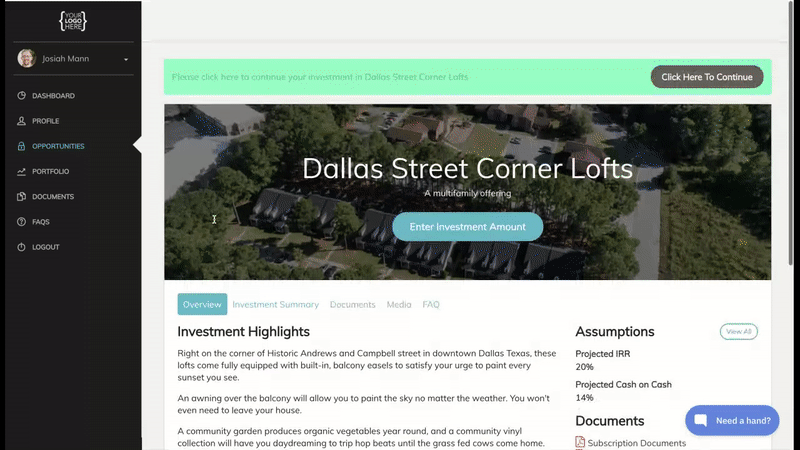Canada’s startup ecosystem has steadily grown into a diverse and resource-rich community, earning it the ranking of the fourth-best global startup ecosystem by StartupBlink two years in a row. While the country does its best to nurture new businesses, startups in Canada face a unique set of challenges. Constant comparisons to Silicon Valley add another layer of anxiety for startup founders already preoccupied with launching a business from the ground up.

In addition to the country-specific problems faced by startups in Canada, there are also the typical challenges such as sourcing funding, hiring talent, and protecting their ideas. To learn more about overcoming the obstacles of launching a startup in the Great White North, we sought out advice for entrepreneurs from fellow founders who’ve faced the unique challenges of the Canadian startup ecosystem.
Finding and applying to grants in Canada
To new entrepreneurs, the abundance of available small business grants in Canada may look like a gold mine. As they start to read the details, however, they often notice that many grants for startups in Canada have hyper-specific criteria on who can apply. While the availability of hundreds of grants is a great resource for new businesses, reading through the fine print on each can take precious time away from entrepreneurs.
Applying to receive grants is a separate, yet still lengthy and difficult process. Demonstrating eligibility, calculating financial data, and providing the most minute business information takes a lot of effort. We asked Canadian founders to share their advice for entrepreneurs seeking grants to see how they approached the process.

“My advice would be to dedicate enough time to research, applications, and outreach for government grants, and do it early. Building a foundation and application for a government program, such as the SR&ED tax incentive, is a continuously running program, not a one-time process. Doing it early sets you up for easier access down the road.”
Organize a grant-seeking strategy
With the amount of work that goes into applying for grants, a methodological approach is vital to stretching limited resources. Startup grants are abundant in Canada, so using databases or tools — such as the Canadian government’s interactive business program finder — to find the ones that fit your business is a must. Pre-planning may also be required, as some grants only apply to specific business operations, like hiring or marketing.

“ For early-stage teams, there are many hiring grants available to cover the costs of hiring students or recent graduates. By holding ourselves accountable to capital efficiency and leaning on government programs for support, we have been able to grow our business to 40 employees serving 800,000 users in four years without raising any capital from private investors.”
Grant management software can also be useful when finding and applying for startup grants. It collects and notifies users of new grant opportunities and allows founders to generate and save business data they can re-use across applications. Making the grant-seeking process as uniform as possible can also speed it up, saving valuable time for entrepreneurs.
Stay on top of bootstrapping efforts
Some founders prefer to grow their startups without seeking outside funding. Using income generated from the startup itself or relying on personal savings to fund a startup is called bootstrapping. However, as with all methods of funding a startup, organization is the key to ensuring neither efforts nor dollars go to waste.
“I find that Canada lags in access to confident capital financing/fundraising and found that Canadian VCs are certainly more risk-averse than other places. On the flip side of the coin, aligning yourself with the right funding partner also comes with benefits other than cash, in the form of advice, connections, and support.”
Bootstrapping a startup isn’t the only funding method that startups in Canada should keep organized. Whether your funding comes from internal or external sources, using accounting software can help streamline your finance tracking and protect your business against miscalculations or errors. Digitizing financial record keeping can also save time, which is likely the most valuable resource for a startup founder.
Fundraising tips for startups in Canada
One of the problems unique to the startup ecosystem in Canada is the difficulty of fundraising. It isn’t solely a stereotype; studies have shown that the Canadian population in general is a risk-averse one. Startup founders back this information up based on their own experiences with investors and angels.

“I found that Canadian investors are traditionally more risk averse. They are not as big risk takers as, say, American investors. They’re not really the ones to jump into the deep end on something that is ‘unproven.’”
“I find that Canada lags in access to confident capital financing/fundraising and found that Canadian VCs are certainly more risk-averse than other places. On the flip side of the coin, aligning yourself with the right funding partner also comes with benefits other than cash, in the form of advice, connections, and support.”
While fundraising isn’t an easy process, a successful fundraising effort provides numerous advantages to a growing startup. Make it easier on your startup by finding the tools that automate financial documents and update the business plans needed to impress investors by researching investment management software. Some virtual tools even provide investor databases and email campaign capabilities for providing updates, allowing startups to manage investor relationships.

Build a community around you
Important advice for entrepreneurs in any country is to tap into a community of entrepreneurs like yourself. Financial resources will build a startup in a business sense, but contacts with similar experiences (which you can keep track of using contact management software) can offer support in a dynamic range of ways. From sourcing top talent to launching in new markets to getting key advice in tricky situations and beyond, person-to-person connection is one of the most valuable aspects of the Canadian startup ecosystem.

“In the late ’90s when I started AdButler, I wasn’t friends with any businesspeople and didn’t understand the value of an entrepreneurial peer group. There is a tremendous amount of value in having friends that are entrepreneurs. A single coffee with a friend can stop you from making an expensive blunder or spark a multi-million dollar idea. The net effect of those coffees over a lifetime is incalculable.”
“Leverage connections. It is not easy to find funding, and it is often a long, tedious process. Connections can provide alternate sources of funding. In my case, I bootstrapped by tapping into a market in which I had connections and grew my business from that initially.”
“My advice for anyone looking to create a startup in Canada is to never shy away from seeking help from the community. Across every major city across the country you will find ample incubators, accelerators, mentorship programs, and peer groups ready and willing to help.”
While Canada’s startup community may not have all the resources of Silicon Valley just yet, the features it does have make it special. Organizing the projects that tap into the unique resources that Canada does have to offer is the best strategy for utilizing them to their fullest potential.
Note: The applications selected in this article are examples to show a feature in context and are not intended as endorsements or recommendations. They have been obtained from sources believed to be reliable at the time of publication.
